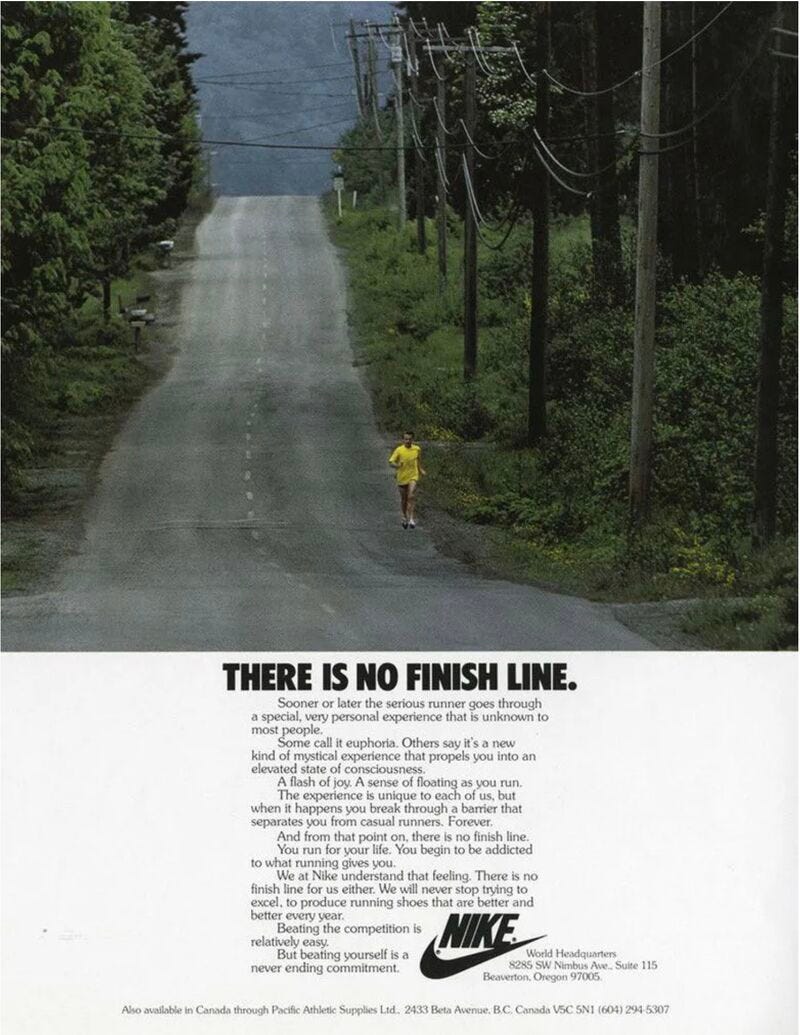There is no finish line
These words from Nike's iconic 1977 ad keep echoing in my mind as I reflect on my first post-illness run this morning. After weeks of various infections (the joys of having a toddler in childcare), I finally felt strong enough to run. But in the morning chaos, I left behind my usual running companions: the watch, the fitness tracker, the Airpods.
What I discovered was unexpected clarity.
Without the steady stream of data and content, I could hear my lungs working harder than before my illness. I felt myself running slower, and for once, that observation wasn't mediated through a screen telling me how to feel about it. My mind, unburdened by podcasts optimizing my "idle" time, wandered freely until it landed on a decade-old memory: Wolfgang Blau's assertion that we should strive to be "data-informed, not data-driven" in our decision-making.
This distinction feels particularly relevant to our relationship with fitness technology. While innovations in running shoes and clothing have genuinely improved how we interact with the sport, our obsession with tracking, measuring, and augmenting every aspect of the experience often disconnects us from our bodies' natural intelligence.
That vintage Nike ad captures something we've perhaps lost sight of: a solitary runner on an endless road, no visible branding, no stats, no distractions. Just the pure, unmediated experience of movement.
The irony isn't lost on me: I'm using LinkedIn to advocate for less technology. But perhaps that's exactly the point - technology should enhance our experiences, not replace our ability to understand and trust ourselves.
After all, there is no finish line in our relationship with technology either. The question is whether we're running towards greater self-knowledge or away from it.


